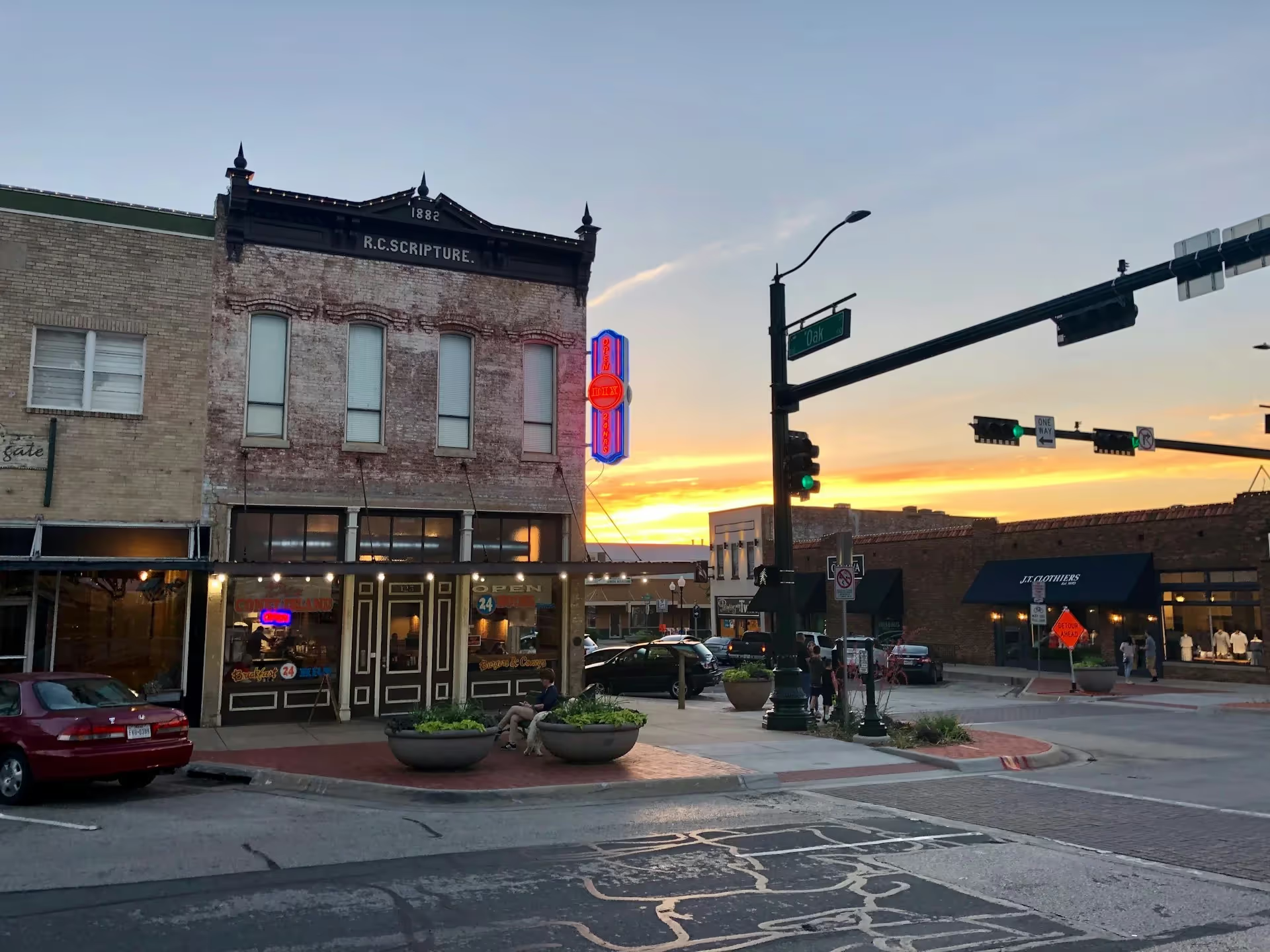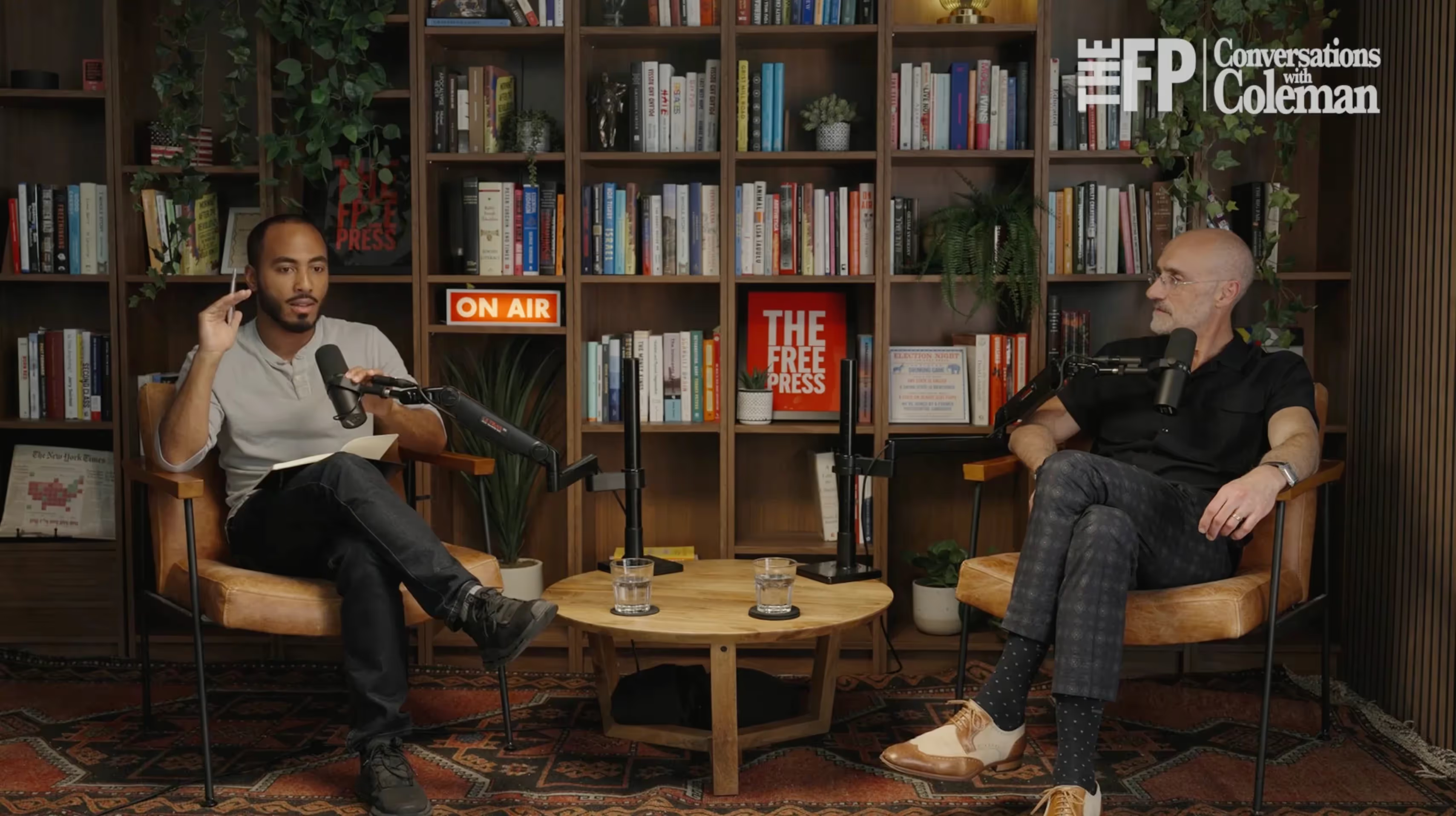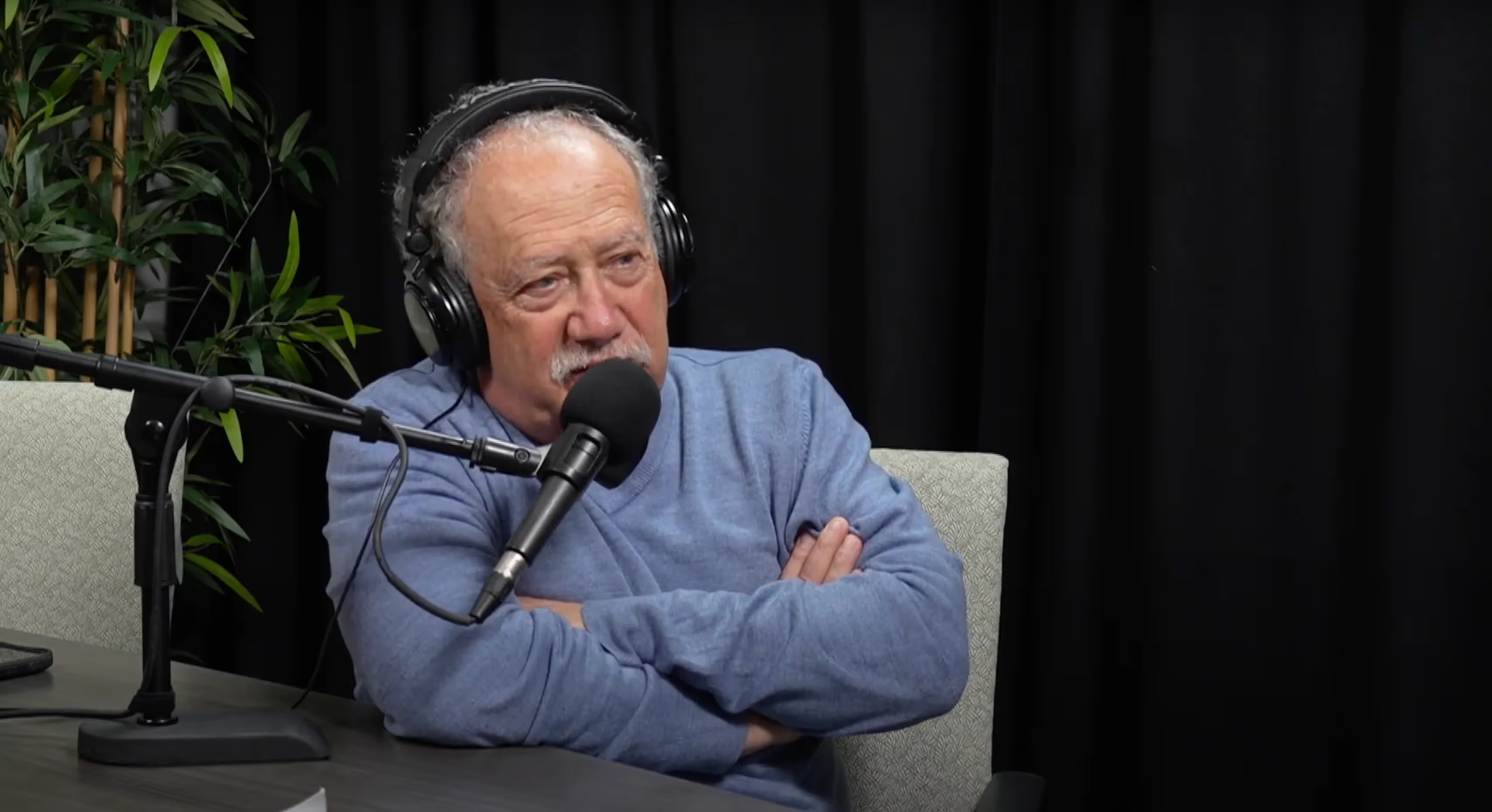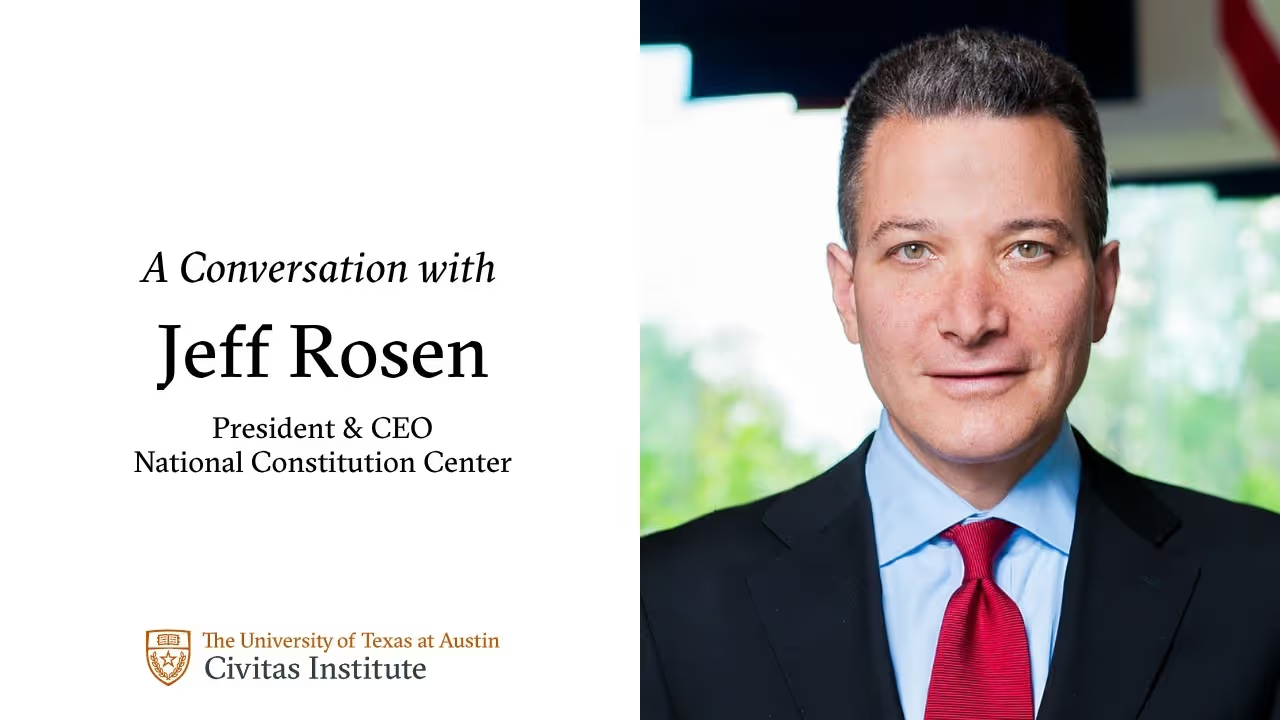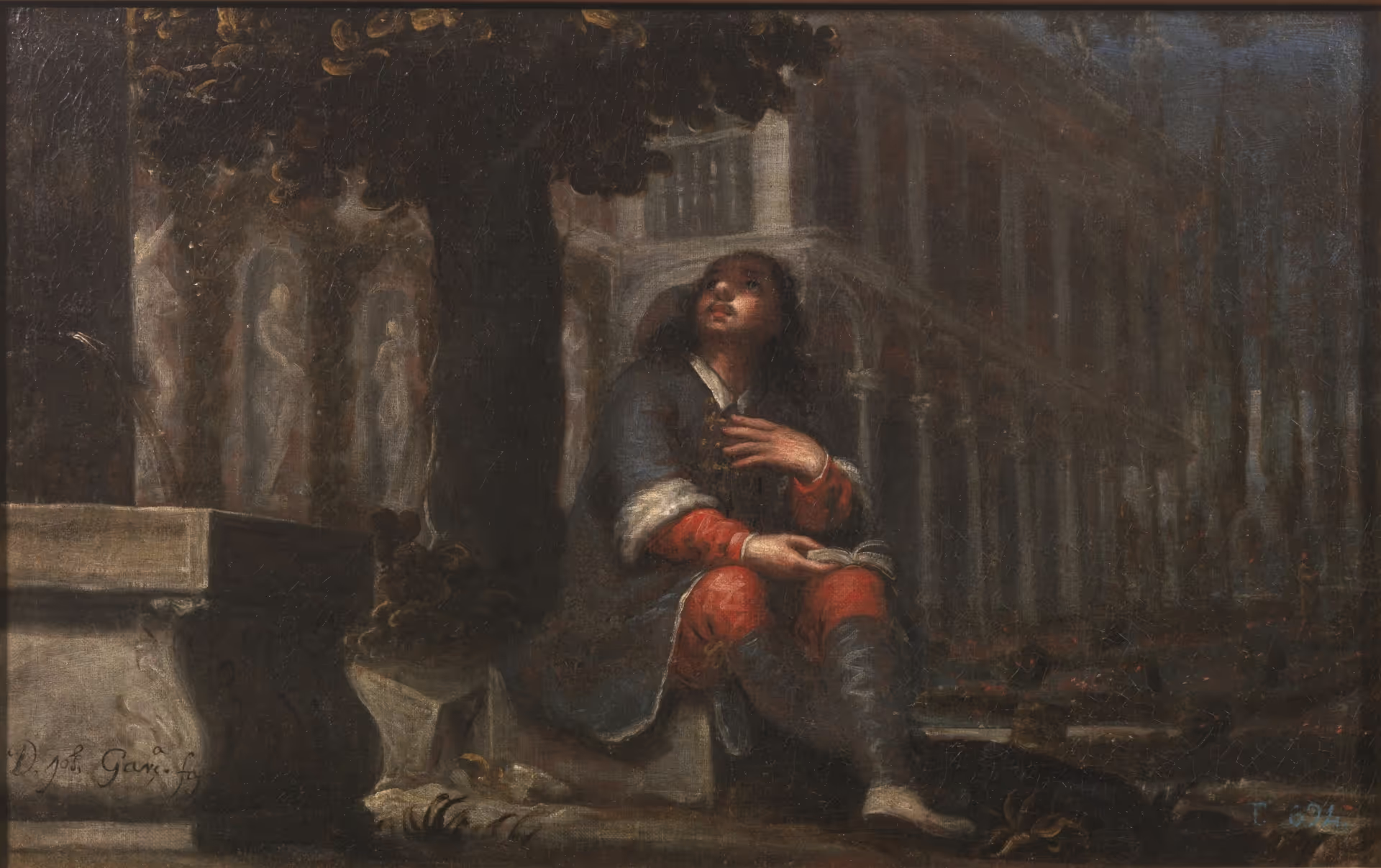
How Reading Augustine Dispels Ideological Illusions
I went to the end of my journey and found Augustine.
During the 1990s, a small northeastern Catholic college invited me to discuss my book on how Saint Augustine’s writings could help to explain America’s culture wars. Several Catholic sisters who taught at the school greeted me when I arrived at the train station. As we walked toward the campus, one of the sisters said they had prepared fish for me for lunch, as it was Lent. I thanked her, but said it was unnecessary. She looked confused and said, “But you’re Catholic, aren’t you?” I replied, “Well, no, not exactly.” Then she said, “But you’re Christian, aren’t you?” I answered, “Well, no, not exactly that either.” As the other sisters drew near, their eyes widening, one of them asked, “But, then, what are you?” I replied, “I am a secular Jew who grew up on the beaches of southern California.” Once they got over the shock of what seemed like their worst nightmare, I said, “Don’t forget, sisters, there are many ways to God. Augustine was a philosopher, Paul was a Pharisee, and Mary Magdalene suffered from demons.”
Yet in the years since, I came to realize that my way was really Augustine’s way, and not any special Dworkin way, which is why Augustine figures so prominently in my spiritual life, to the degree that I have one. What is the path through life that Augustine blazed and that so many others have followed?
As Augustine tells in his Confessions, while a young man in Carthage, all he thought about was love and sex. Even his famous prayer, “Lord, make me chaste—but not yet,” was still far off. When I was a teenager growing up in southern California during the 1970s, I, too, thought plenty about love and sex.
Augustine moved beyond that stage when he had his first experience with higher education. He read “books many and huge,” and found them exciting but also unsettling and confusing, as he negotiated for the first time the strange new world of ideas. Hungry for intellectual safety and security, while also wanting to be a “great fellow” with a surefire answer to every question, he reflexively joined a sect. He became a Manichean. Manicheism had all the answers, he thought. Manicheism would explain good and evil. Manicheism would explain why events unfolded as they did and what the future held.
When I went to college, I, too, experienced both excitement and confusion as I immersed myself in the world of ideas for the first time. Much of what I had learned while growing up was challenged, causing me to lose my bearings. I, too, reflexively sought order in a sect, one that had airtight arguments for all occasions. I became a Marxist. Marxism had all the answers, I thought. Marxism would explain good and evil. Marxism would explain where the world was headed.
Over time, Augustine realized that Manicheism was not so omniscient. In his Confessions, he describes meeting Faustus, the sect’s head, who stumbled when confronted with basic questions, such as how the Manicheans’ astrology could be true if twins born at the exact moment, under the same star sign, went on to lead such different lives. In my case, I entered adulthood during the Reagan years. The American economy was booming, capitalism was vindicated, and Marxism seemed hopelessly wrong.
After he left the Manicheans, Augustine became a skeptic, with no strong allegiance to any belief system. I behaved similarly, thinking there was no truth, nor had there ever been any truth. However, Augustine then discovered philosophy, particularly Plato. Through philosophy, he transcended the material world and glimpsed the universal and eternal. Philosophy did not offer mere intellectual security. It was more objective and academic, disciplining the spirit in a new way; it expressed a love of truth, a righteous love, durable and ever faithful.
In my late twenties, while in graduate school, I, too, discovered Plato, thinking I had finally found truth to live by. Nestled deep in my armchair, I transcended the material world and travelled by my reason as far as the highest and remotest stars, into the heavenly realm of Ideas.
But Augustine soon realized that Plato is pretty thin gruel to live by. What does a life of pure reason promise? Isolation and solitude—a solitude without flowers or colors, without sounds, smells, or touch, without animals or people, a solitude without even a god, an airless solitude of some strange world existing before or beyond time. It is a world where nothing refreshes or relaxes; at most, a meager repast of urbane conversation in a low voice with another philosopher. No play, no scenery, no costume, no eros. I observed these same limitations in philosophy.
So Augustine came to the end of his journey and found God. He realized the serene calm he wanted could come from no other method than grace. In my case, I went to the end of my journey and found Augustine.
I found him in a strange place. In graduate school, I took a seminar titled “Nietzsche and Augustine,” but, being a secular, post-modern university, the whole point of the course was to make Augustine a foil for Nietzsche. Plenty of accusations were hurled against the poor saint, including those of sexism, racism, and authoritarianism. However, Augustine’s writings spoke to me in a profound way, and I found myself warming to his theology. The other students noticed what was happening and were disturbed by it. One fellow student even approached me from across the quad, angrily wagging his finger at me, and barking, “You’re missing the whole point of the class!”
Perhaps I was primed for this sudden transformation. I grew up among the fleshpots, drugs, and other vices typical of southern California a half-century ago. But the region had other qualities that may have prepared my mind for what was about to happen. Its low skyline reminded people of their smallness, for nothing man-made intervened between the ordinary city blocks and the extraordinary sky. At the level of the earth, the eye saw reality against the backdrop of one and two-story buildings. Lift the angle ever so slightly, and the eye saw nothing again until it fixed on heaven itself. On the east coast, skyscrapers sprout from the ground like Towers of Babel, threatening the exclusivity of heaven; the eye studies their rise and drinks in the richness of human glory; some people even imagine themselves lordly because their creations merge with those of God. But in southern California during those years, no intermediate stage existed between the humdrum earth and the enormous sky to puff up a person. When the majestic sun shone forth, and when the only competitors were tract houses and stubby office buildings, people felt their smallness and knew that heaven and earth were far apart.
The crucial moment came at a gas station. Filling up my tank while leaning against my car, I struggled to understand passages from the Confessions about time and eternity. Its meaning suddenly came to me. Man’s fall involved more than just having to work for a living; it was to live in time, a mental aberration, an artifact originating in the apparatus of memory, which gave rise to the imagined snares of “past” and “future” that throw a person into a state of flux. It is because they live in imagined layers of time that people seek happiness while remembering sadness, aspire to success while regretting failure, and bemoan what has happened while fearing what might happen, consuming so much of their energy and attention. In contrast, eternity is analogous to the California sky, I mused. It is not happy but peaceful and tranquil, calm and “without perturbation,” as Augustine described eternity.
I was hooked. A medieval monk reportedly once said, “He who claims to have read all Augustine lies,” as Augustine’s writings fill almost one hundred volumes. But for the rest of graduate school, I read as much of Augustine as I possibly could. And I laughed whenever I found myself in his works. Augustine teased the Manicheans for their obsession with diet, including their avoidance of meat, thinking that they were somehow better, higher, and more divine in their abstinence. I took similar pride in eating organic fruits and vegetables, and whole wheat bread, and in my refusal to defile myself with fast food. Was I not searching for God “with nose and palate,” as Augustine had accused the Manicheans of doing? Augustine teased the Pelagians for their vain belief that people are self-sufficient, able to do good and love at will, and without any serious imperfections to their natures. In the pride I took in being a political utopian, in imagining loving communities, and in my belief that mere self-control, education, and getting in touch with one’s feelings would lead humanity to a paradise of wellness on earth, did I not have the same dangerously naïve and simplistic understanding of human volition and will that Augustine had exposed among the Pelagians?
Augustine also corrected several misunderstandings I had about Christianity. The notion of predestination had especially rankled. John Calvin said some people were among “the elect” and predestined to be with God in Heaven, while others were predestined to burn in Hell—to me, a ridiculous notion. But Augustine had pioneered the concept in “The Predestination of the Saints,” and meant something very different when doing so. Indeed, in the relevant section, he doesn’t even refer to Hell. Some people, he explained, are predestined to understand religion, to grasp its meaning. For those among the “elect,” their reward is not to go to heaven. They are in heaven. Conversely, those who fail to “get” religion do not go to hell. They are in hell. They are “still the earth” (his italics). Unable to detach themselves from the world and its ways, trapped in time’s flux, they feel at peak amplitude every bad feeling that comes with life. The idea made sense to me.
I wanted to read the Jewish Augustine. I asked a rabbi for suggestions. I told him I wanted to read someone who spoke of the “fields of memories,” as Augustine had in his Confessions, who looked inward and explored the primal beast, and who described all that was pent up in the hidden recesses of his mind. The rabbi stroked his chin and said, “The only great Jewish writer working on that level is Freud—and he was secular.”
Several Catholic theologians advised me to read Thomas Aquinas, implying that Aquinas was the upgrade, or Catholic theology 2.0. I did, and I came to admire Aquinas for his near-perfect balance between reason and revelation, as well as his understanding of God as pure being. But as the torn man of desires, someone who ferociously sought to give himself happiness by his unaided powers, while also recognizing he was powerless to do so, Augustine seemed closer to my own experience, and someone whom I could identify with, rather than Aquinas, who was lucky enough to have been born, lived, and died in the light, with no hint of personal struggle. When Aquinas was 19 years old, his brother tempted him with a beautiful hooker to dissuade him from becoming a monk. Aquinas reportedly picked up a burning log and chased the woman out of the room. At his age, I would have behaved very differently. I think Augustine would have too.
Growing up in southern California meant growing up in a realm of illusion. Flat-faced shops sat humbly behind sidewalks, but a colorful neon sign in front of each proclaimed the age of electricity, while starbursts affixed to stucco walls proclaimed the age of space. Liquor stores and motels had galactic names like Orbit, Jupiter, and Rocket; the sharp, cutting fixtures atop the angular roofs suggested that each building was poised for take-off. In some of the larger lots, office buildings with white, flying-saucer-like concrete domes sat, the workers inside assumed to be future-oriented and interplanetary. Nostalgia for the old West sometimes peeped through in the form of a plastic bucking bronco thrusting upward in a shop window, or an outhouse in the shape of a wigwam. The L.A. suburb where I grew up even offered bits of itself to countries around the globe: a bakery with a Dutch windmill, a donut shop shaped like an Egyptian pyramid, and a Polynesian restaurant featuring torches, palms, and a tiki garden. And, of course, Hollywood and Disneyland loomed nearby.
Such phenomena are living proof of people’s propensity to dream, to love the exotic and the amazing, and to exercise their natural gift for make-believe. Augustine recognized the same tendency in himself, reflecting how, as a young man, he often went to the theater looking for “opportunities for sorrow.” He liked to feel misery when watching a tragic love story unfold on stage, so much so that if he didn’t feel misery, he wanted his money back. The perverse experience taught him that happiness is often not in reality but in our illusions. Strip our pleasures of our illusions, and often nothing is left.
Reading Augustine taught me to be on guard against this tendency toward illusion that exists in all of us. Every perception requires interpretation, and with interpretation comes the potential for illusion. The modern solution to the problem is always more knowledge. But how was knowledge gained? Through our senses? Even the senses fall prey to illusion in that we imagine being in control of them when we are not, Augustine explained. In “On Nature and Grace,” he notes how a man can see, but if his eyes are kept open during the day, he cannot not see. A man can hear, but if his ears are laid bare and sounds continue, he cannot not hear. There is a certain necessity in sensing, just as there is a certain necessity in sinning, he said; we only have the illusion of being in control. It is the same when we seek knowledge, Augustine said. Often, what we think is knowledge is simply another person’s will overpowering our own, and convincing us of his or her illusion.
Augustine taught me to be on guard against words for the same reason, as words can also trigger illusions. Even words in the Bible can do so, he observed. People project onto ill-defined words in the Bible whatever meaning they want, even going so far as to imagine God as a “colossus” or a creature with red hair.
Better to learn what words mean through experience, Augustine advised. Rather than read a book about how to walk, for instance, he teased, better just to walk. The words in the book aren’t wrong, he said, yet they fail to capture the experience of walking, which can better be learned directly.
Augustine’s advice protected me against the tendency toward generalization that is so dominant in the university and professional life more generally. In the university, the acquisition of knowledge typically proceeds in one direction. People generalize and create ideas, expressed through words. The whole premise of university education rests on the belief that, while isolated in a classroom, one can divide real life phenomena into parts, each part isolated from the others, and make each part a distinct concept—a word. That is how we arrive at concepts such as democracy, authoritarianism, and even the concept of humanity itself. It is a dangerously easy process that comes naturally, which is why young people instinctively gravitate toward it.
Far more difficult is gaining knowledge in the other direction, through what might be called judgment, when a person must return from the general concept to the individual case. Unlike abstraction, judgment takes time and experience. It cannot be rushed. When I practiced anesthesiology, judgment proved vital, especially when dealing with older patients. In younger patients, concepts and generalizations guide medical practice reasonably well, because these patients have a wide safety margin. Older patients lack this margin, and so judgment becomes vital.
Augustine warned me against the illusions of words, of knowledge, and of control, but the most crucial illusion he warned me against was the illusion of my own importance. The vain desire for honor, esteem, and praise is passed down through the ages, through different bodies, including my own, as is the desire for wealth, love, and happiness, even though nothing lasts —a point that is often forgotten. What is honor, other than “smoke which has no weight?” Augustine said. There are those who surrender their will to this truth and live an ascetic life. I cannot. But Augustine gave me plenty of reminders to check myself whenever I imagine soaring like a bird. He gave me a sense of humor about myself.
Augustine’s wisdom often comes to me in the form of a memory from my California days. Close to sunset, on the beach, a line of light separated the radiant west from the pitch-black east. To the west, across the Pacific, for unending miles, the proud blue-green ocean shimmered beneath the waning sun, still beautiful and accessible. On the beach, in the tangle of piers and snack shops abutting the sand, one could hear the incessant squeals of happy children, volleyball players calling their points, and radios humming their tunes. Palm trees rocked back and forth beneath the wind’s caresses; the birds chirped in the spirting light of the sunset. But as one’s eye moved east, the spacious California heaven grew deeper, bluer, and colder. On the other side of the line of light, the sky was dark and joyless, while the moon hung despondently, without a smile. The sprinkle of mountains in the distance had already perished in the black skyey earth, and, one by one, the advancing darkness engulfed every house, every office, and every backyard of laughing people, gone as though they had never been.
Ronald W. Dworkin, M.D., PhD is a fellow at the Institute for Advanced Studies in Culture, at the University of Virginia. His other writing can be found at RonaldWDworkin.com.
Pursuit of Happiness
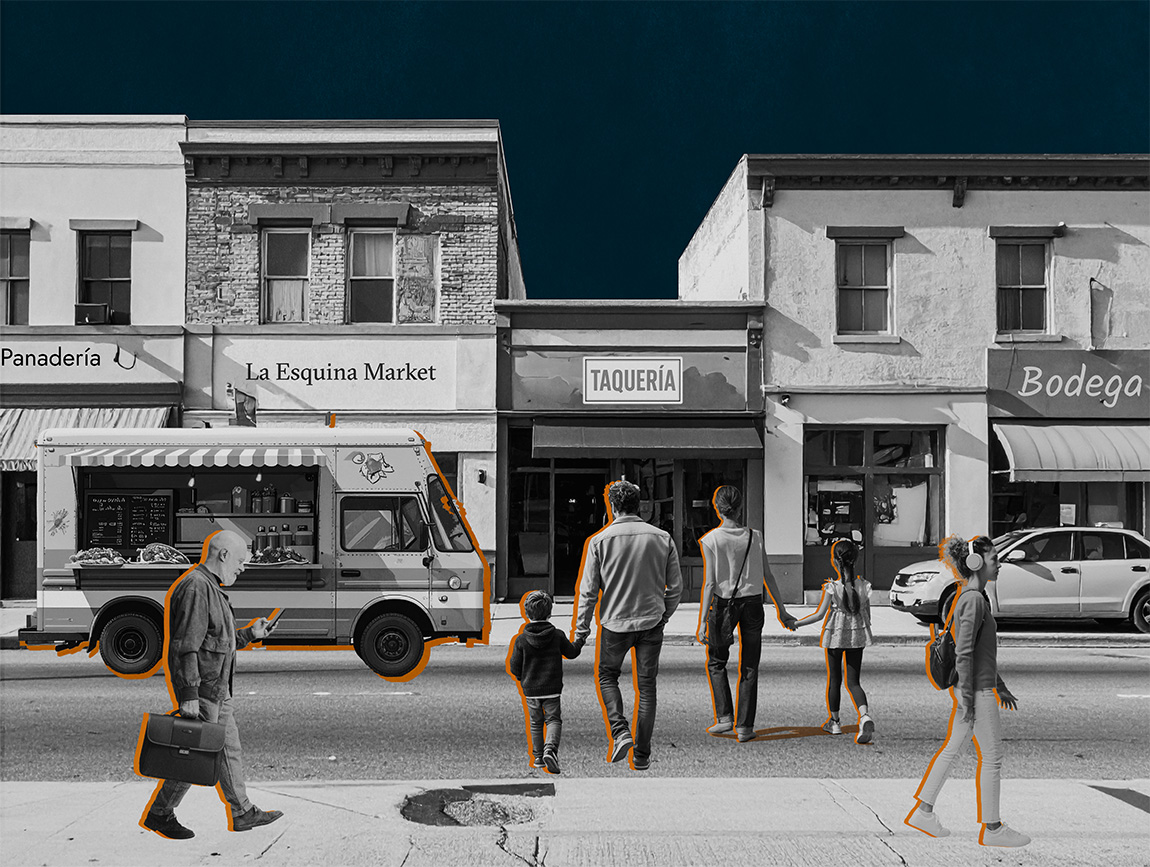
The Rise of Latino America
In The Rise of Latino America, Hernandez & Kotkin argue that Latinos, who are projected to become America’s largest ethnic group, are a dynamic force shaping the nation’s demographic, economic, and cultural future. Far from being a marginalized group defined by oppression, Latinos are integral to America’s story. They drive economic growth, cultural evolution, and workforce vitality. Challenges, however, including poverty, educational disparities, and restrictive policies, threaten their upward mobility. Policymakers who wish to harness Latino potential to ensure national prosperity and resilience should adopt policies that prioritize affordability, safety, and economic opportunity over ideological constraints.

Richard Epstein on Roman Law and Sociobiology
How and why Roman law worked, how it eventually fell apart, and sociobiology as a way to explain the foundations and limits of legal norms.
.jpg)
The False Equivalence of Multicultural Day
Parents have an affirmative obligation to reinforce patriotic values and counter the narratives that are taught in school.
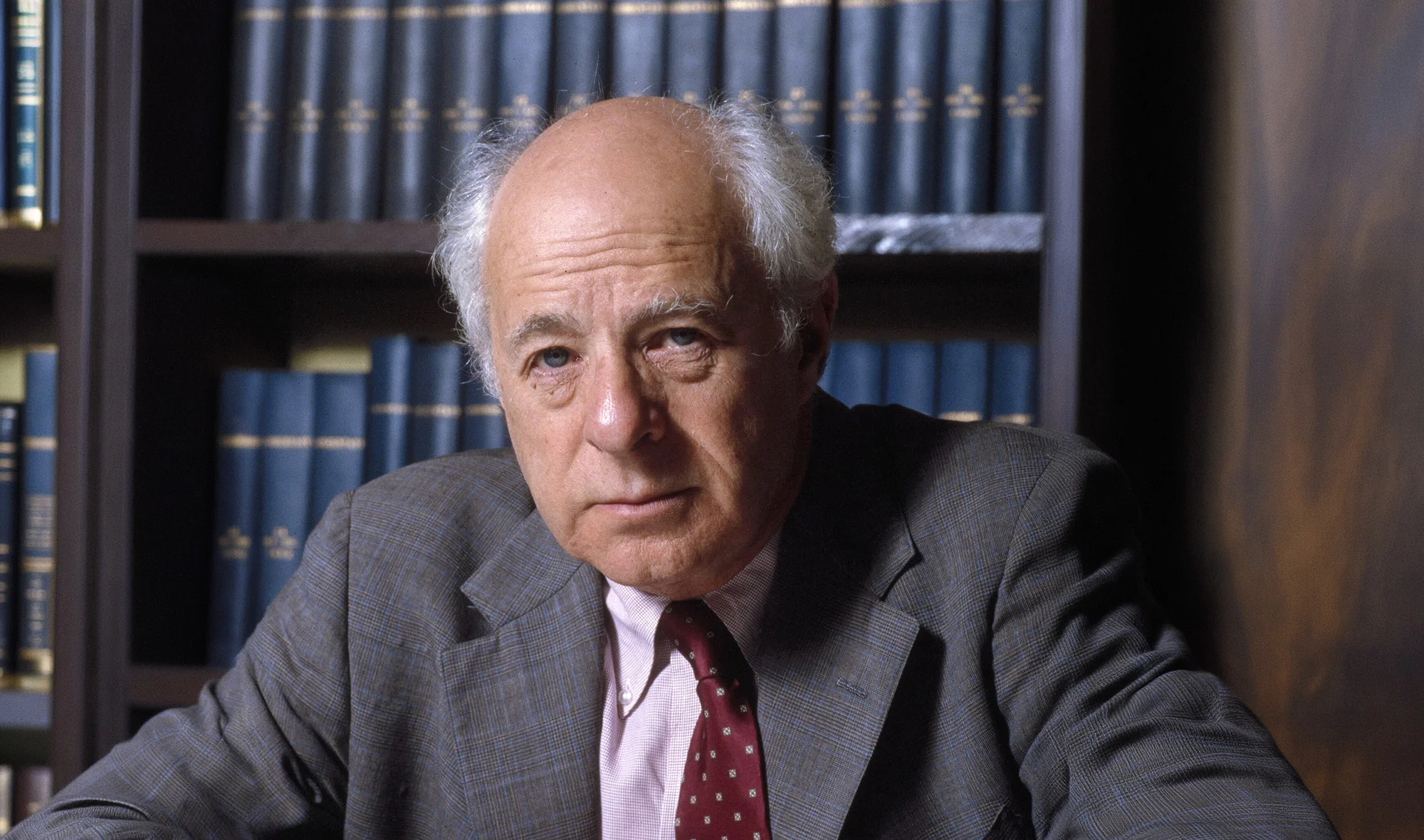
Norman Podhoretz: American Patriot, Faithful Jew, and Indomitable Defender of Civilization
Podhoretz never turned on the promise of America.


